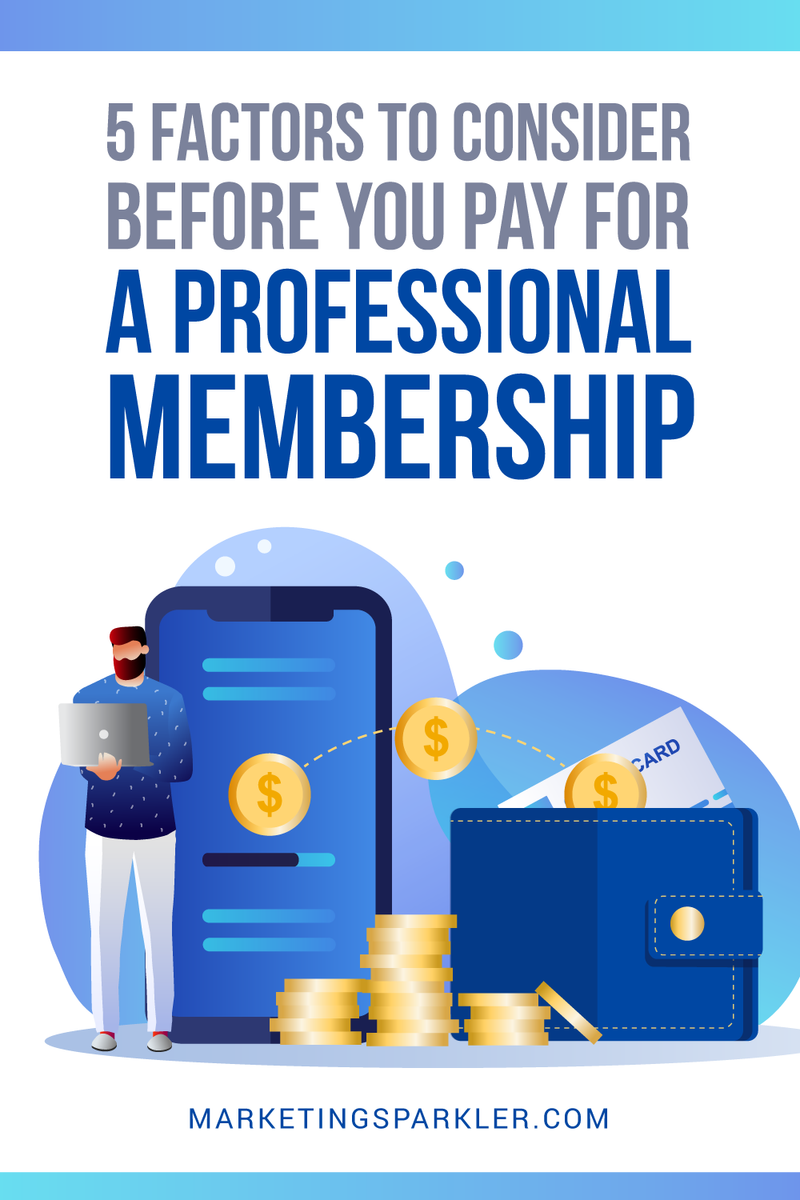We’ve spent a little time talking about professional memberships. In the first post, we talked about building your network with professional memberships. Next, we detailed five easy ways to maximize your membership dollars. What’s left? We need to tackle the most critical question of all: how to decide which professional organizations to join You may use these 5 factors as a starting point.
5 Factors To Consider Before You Pay For A Professional Membership
Membership Base
Who are the members? Are you looking to get exposure to your target market, vendors, and/or competitors? Do the members constitute your audience? Are they your peers, potential affiliates or partners, or a general mix of professionals? Is the membership with a local chapter of a national organization? Is it exclusively local or simply nationwide? All of these membership criteria will make a difference as you work to expand your network and reach new clients.
Activity and Interaction
How active is the organization? Do they host weekly, monthly or bi monthly meetings and events? How is the interaction facilitated – via in person events, online, or a mix that is feasible for you?
The level of activity makes a difference if you’re looking to be an active member. You need to determine how much scheduled face time and regular interaction you’ll have with other members. An active organization will offer frequent opportunities for you to get to know fellow members, which in turn helps you build those relationships.
Time
Is the time you will have to invest to reach other members realistic? This is directly related to the level of scheduled interactions. Will you have to reach out to members on your own to foster communication, or will the organization provide that forum, either in person or online? How much time and effort will you have to spend to communicate with other members?
Communications can be in print (directories, newsletters, mass mailings), online (forums, group emails, webinars), or face-to-face. But you need to determine all the different ways the organization fosters internal communication.
Money
Is there a fee to join? Will your company reimburse you? If not, can you write it off as a business expense? Can you otherwise swing it?
Development Opportunities
Are you the sharpest knife in the drawer? Can you learn from your fellow members? And I don’t mean in the generic “there’s always something I can learn” or the “you can learn something from anyone” sense. I’m talking about real learning and quality education from people who are where you want to be.
You should be looking to develop and enhance your skill set, so hanging around people who are at the same level or below your current level all the time will not enhance your skill set for the purposes of this post. If you can’t readily identify a track of higher learning and development for yourself, the organization might not be the fit for you.
Bottom Line
Be honest with yourself about each of these factors. You want to feel like your time and money is being well spent. You will want to stay motivated to continue participating in activities and attending events once the “newness” wears off. Will you enjoy thought-provoking dialogue for personal and professional development, or will you spend more time making small talk and swapping stories? Remember, you can make small talk at the grocery store!
Once you join an organization, you’ll want to reconsider these factors on an annual basis. Your needs will change as your business grows, so what seemed like a good fit a year ago isn’t necessarily right for your needs now.
There is one more point I cannot emphasize enough. Don’t feel pressured to join any organization because your peers are members, or because the title sounds like somewhere you need to be. Do your homework and make an educated decision based on your own needs.
Ciao,
Miss Kemya


